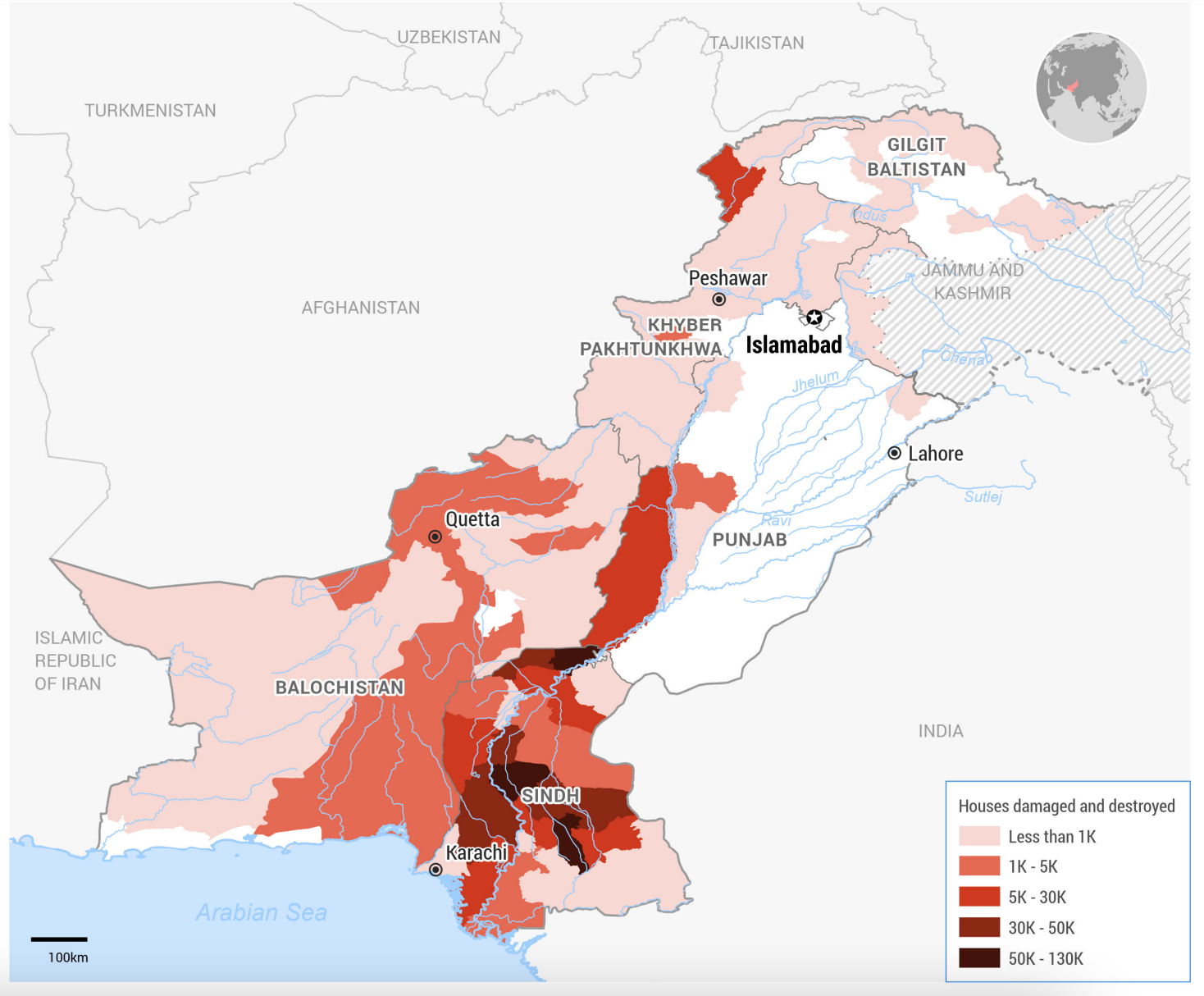Pakistan floods: 5.7 million people to face ‘serious’ food crisis, warns UN
Death toll from the deluge that has affected more than 33 million people reaches almost 1,700

Your support helps us to tell the story
From reproductive rights to climate change to Big Tech, The Independent is on the ground when the story is developing. Whether it's investigating the financials of Elon Musk's pro-Trump PAC or producing our latest documentary, 'The A Word', which shines a light on the American women fighting for reproductive rights, we know how important it is to parse out the facts from the messaging.
At such a critical moment in US history, we need reporters on the ground. Your donation allows us to keep sending journalists to speak to both sides of the story.
The Independent is trusted by Americans across the entire political spectrum. And unlike many other quality news outlets, we choose not to lock Americans out of our reporting and analysis with paywalls. We believe quality journalism should be available to everyone, paid for by those who can afford it.
Your support makes all the difference.Pakistan’s flood victims, already battered by an ongoing public health crisis, now face a “serious” food crisis as well in the coming months, the United Nations has warned, as the death toll from the deadly deluge continues to rise.
The latest report from the United Nations humanitarian agency has warned that the current floods are expected to further exacerbate food insecurity in Pakistan.
In its report, the UN Office for the Coordination of Humanitarian Affairs (OCHA) says that about 5.7 million flood survivors in the affected areas will face a food crisis between September and November.
Even before the floods, according to the World Health Organisation, 16 per cent of the population in Pakistan was living in moderate or severe food insecurity. However, Pakistan’s government insists that there is no immediate concern about food supplies, as wheat stocks are sufficient to last until the next harvest, and the government is importing more.
The UN agency also said, in a tweet on Monday, that it had scaled up its flood response in line with other agencies, and that aid had been delivered to 1.6 million people directly affected by the deluge.
The UN said last week that “food is being delivered to vulnerable families”, but that it was “still not enough to meet the nutrition needs of the people”.
The warning over an impending food crisis comes as an uptick in infectious diseases, such as dengue and malaria, was noted among the 33 million people affected by the floods, stretching the country’s healthcare system.
The crisis has led to the UN revising up the target of its humanitarian appeal for Pakistan fivefold on Monday, from $160m to $816m.
Julien Harneis, UN humanitarian coordinator for Pakistan, spoke at a briefing in Geneva about the prevalence of fast-spreading water-borne diseases, saying: “We are now entering a second wave of death and destruction.
“There will be an increase in child morbidity, and it will be pretty terrible unless we act rapidly to support the government in increasing the provision of health, nutrition and water and sanitation services across the affected areas.”
Pakistan’s government says that the floods have caused about $30bn of damage to its economy, from which the country could take years to recover. Floods washed away thousands of kilometres of roads, destroyed 440 bridges, and disrupted railways.

Pakistan’s National Disaster Management Authority also reported that the death toll from the disastrous flooding, fuelled by the manmade climate crisis, had reached 1,695.
The flooding has damaged more than 2 million homes, displacing hundreds of thousands of people, who are now living in tents or makeshift homes. This means that a large number of people face an increasing risk of infectious disease, raising the prospect of a humanitarian crisis.
The OCHA report also highlighted the ordeal of flood survivors, saying many continue to live in “unsanitary conditions in temporary shelters, often with limited access to basic services, compounding the risk of a major public health crisis”.
It said that pregnant women are being treated in temporary camps where possible, but nearly 130,000 pregnant women need access to healthcare services urgently.
“Already before the floods, Pakistan had one of the highest maternal mortality rates in Asia, with the situation likely to deteriorate,” it warned.
A rapid attribution study carried out by World Weather Attribution has found that the climate crisis played a role in Pakistan’s historic flooding by changing the pattern of the monsoon rainfall in South Asia – a region highly vulnerable to the consequences of a warming planet.
However, some external factors – such as infrastructural vulnerabilities, the delayed response of the authorities, and the rapid melting of glaciers – also contributed to the impact of the flooding.






Join our commenting forum
Join thought-provoking conversations, follow other Independent readers and see their replies
Comments